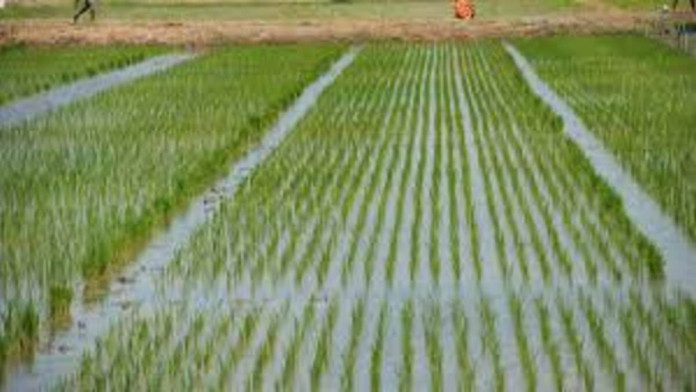News in Brief:
– Jigawa state is prioritising agriculture to fight poverty by empowering citizens and creating jobs, especially in rural areas.
– The state’s successful dry season rice farming initiative is expected to produce a record-breaking harvest of over 800,000 metric tons in 2024.
Nigeria’s Jigawa state is placing agriculture at the center stage of its fight against poverty, with plans to achieve record-breaking rice production in 2024.
Governor Malam Umar Namadi identified agriculture as a cornerstone of his 12-point development agenda. He noted that investing in this sector holds immense potential to empower Jigawa’s citizens, particularly in rural communities.
Meantime, the dry season farming initiative serves as a testament to the power of agriculture in Jigawa. With significant government support, farmers were able to cultivate over 200,000 hectares of rice during this period.
Governor Namadi visited rice farms across several local government areas to assess the progress and potential of this program. He revealed that the initiative could yield a record-breaking harvest exceeding 800,000 metric tons of rice, significantly boosting Jigawa’s contribution to Nigeria’s overall rice production.
Furthermore, the Jigawa state government played a crucial role in supporting farmers throughout the dry season. It provided subsidised farm inputs and soft loans, enabling farmers to cultivate larger areas of land and contribute to the anticipated record-breaking harvest.
Also, the governor set an ambitious target of producing 1.6 million metric tons of rice in 2024, combining the harvests from both the dry and rainy seasons. This target would represent about 27% of Nigeria’s annual rice requirement.
Achieving this goal would not only strengthen Jigawa’s economy but also make a significant impact on national food security.
Additionally, recognising the challenges faced by farmers, particularly the high cost of fuel, Namadi pledged collaboration with the federal government to secure subsidised fuel.
He is also exploring the possibility of providing farmers with access to solar-powered water pump generators at subsidised rates. This long-term solution aims to reduce production costs and increase farmer profits.



